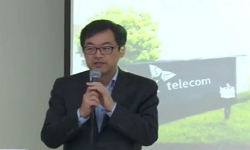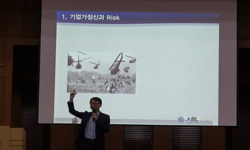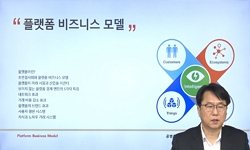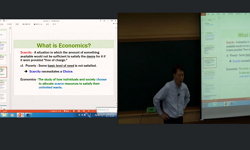환경규제가 기업의 경쟁력에 어떤 영향을 미치는가 하는 질문은 낡고 새로운 문제이다. 전통적인 경제학자나 산업계의 대부분은 환경규제가 경쟁력을 떨어뜨리는 것으로 받아들여져 왔고, ...
http://chineseinput.net/에서 pinyin(병음)방식으로 중국어를 변환할 수 있습니다.
변환된 중국어를 복사하여 사용하시면 됩니다.
- 中文 을 입력하시려면 zhongwen을 입력하시고 space를누르시면됩니다.
- 北京 을 입력하시려면 beijing을 입력하시고 space를 누르시면 됩니다.
https://www.riss.kr/link?id=A107068429
- 저자
- 발행기관
- 학술지명
- 권호사항
-
발행연도
2020
-
작성언어
Korean
- 주제어
-
KDC
360
-
등재정보
KCI등재후보
-
자료형태
학술저널
-
수록면
151-183(33쪽)
-
KCI 피인용횟수
0
- 제공처
-
0
상세조회 -
0
다운로드
부가정보
국문 초록 (Abstract)
환경규제가 기업의 경쟁력에 어떤 영향을 미치는가 하는 질문은 낡고 새로운 문제이다. 전통적인 경제학자나 산업계의 대부분은 환경규제가 경쟁력을 떨어뜨리는 것으로 받아들여져 왔고, 규제당국은 자주 이러한 입장에서의 규제 반대의 목소리에 직면하면서 타협점을 모색해 왔다. 한편, 십 수년 전에 이른바 포터가설이 제기되어, 오히려 환경규제로 인해 기업의 생산효율이나 경쟁력이 높아지는 것은 아닌가 하는 견해에도 일정한 이해가 진행되고 있어, 오늘날에는 양론이 병존하고 있는 상황이라고 할 수 있다.
또한, 자국 내에서 환경규제를 엄격하게 하면 생산활동의 해외시프트(이른바 공해회피가설)나 고용의 상실을 초래할 수도 있지만 , 환경규제가 완만하다고 하여 생산과 고용효과가 왕성하게 이루어 진다는 그 근거는 어디에도 없다. 즉, 기업의 경쟁력은 이러한 규제와 무관하게 기업 자체의 경영철학, 혁신활동, 위기대응 등에 따라 좌우된다는 것이 일반적인 관념이다. 따라서 본 글에서는 환경규제에 대한 기업의 대응방법을 개념적으로 정리한 후에, 최근 10년간 정도의 포터가설이나 공해 회피가설에 관한 실증연구를 리뷰함으로써, 현 단계에서의 사회과학적 가설수준을 가늠해보고, 향후의 연구과제를 제기하고자 한다.
본고에서는 공해회피가설과 포터가설에 초점을 맞추고, 환경규제와 기업활동의 영향에 관한 경제학의 실증 연구성과에 대해서 소개하였다. 특히, Arimura et al.(2014)에서는 환경규제와 기술혁신의 관계에 대해서 포터가설에 관한 선행연구에서는 고려되지 않았던 중요한 논점을 지적하고, 환경규제가 기술혁신을 자극하는 관계가 존재할 가능성이 높은 것을 제시하였다. 그러나 현재의 가설검증은 극히 단순한 분석에 근거하여 왔고, 기업규모 등의 기타 요인의 영향을 고려하지 않았다. 후속 연구는 기타 요인의 영향도 고려한 회귀분석 등을 통해 보다 상세하게 보다 정밀하게 가설의 검증을 실시하는 방향으로 공동연구를 진행시킬 필요가 있다.
다국어 초록 (Multilingual Abstract)
The question of how environmental regulation affects a company’s competitiveness is an old and new problem. The majority of traditional economists and industry have been accepted as environmental regulation becoming less competitive, and regulators ...
The question of how environmental regulation affects a company’s competitiveness is an old and new problem. The majority of traditional economists and industry have been accepted as environmental regulation becoming less competitive, and regulators have often sought compromises in the face of voices of regulatory opposition from this point of view. On the other hand, a few decades ago, the so-called Porter hypothesis was raised, and a certain understanding is being progressed even in the view that the environmental regulation will increase the production efficiency and competitiveness of the company, and it can be said that there is a consensus. In addition, strict environmental regulations at home not only result in overseas shifts in production activities (so-called pollution evasion hypothesis) or loss of employment, but rather, if environmental regulations are moderate, it is rather definite in this regard. This is not being derived. Therefore, this study conceptually summarizes the company’s response to environmental regulations, and then reviews empirical research on the Porter hypothesis and the pollution evasion hypothesis for the past 10 years. At the same time, we will present future research in this field.
This paper focuses on the avoidance hypothesis and the porter hypothesis and introduces the empirical research results of economics on the effect of environmental regulations on corporate activities. In particular, Arimura et al., (2014) point out and presented an important issue that was not considered in previous studies on the Porter hypothesis about the relationship between environmental regulation and technological innovation. However, current hypothesis testing is based on an extremely simple analysis and does not take into account the effects of other factors, such as company size. Subsequent studies need to proceed with joint research, such as regression analysis that considers the effects of other factors, and to test hypotheses in more detail.
목차 (Table of Contents)
- 국문초록
- Ⅰ. 서론
- Ⅱ. 환경규제가 기술혁신을 자극하는 경로
- Ⅳ. 포터 가설을 가능하게 하는 규모의 경제성
- Ⅴ. 정리 및 향후의 연구과제
- 국문초록
- Ⅰ. 서론
- Ⅱ. 환경규제가 기술혁신을 자극하는 경로
- Ⅳ. 포터 가설을 가능하게 하는 규모의 경제성
- Ⅴ. 정리 및 향후의 연구과제
- 참고문헌
- ABSTRACT
참고문헌 (Reference)
1 S. A. Al Tuwaijri, 29 : 447-, 2004
2 S. Konar, 83 (83): 281-, 2001
3 M. Wagner, 9 : 33-, 2002
4 M. V. Russo, 40 (40): 534-, 1997
5 A. King, 48 (48): 289-, 2002
6 고병욱, "환경규제에 대한 포터가설 지상(誌上) 논쟁 소개"
7 김은경, "자연보전권역 환경규제 개선방안 연구" 경기연구원 1-140, 2010
8 金原達夫, "金子慎治;環境経営の分析" 白桃書房 2005
9 伊藤康, "経済発展と環境保全" 東洋経済新報社 2001
10 ポーター, M.E, "競争戦略論(Ⅰ)(Ⅱ)" ダイヤモンド社 1999
1 S. A. Al Tuwaijri, 29 : 447-, 2004
2 S. Konar, 83 (83): 281-, 2001
3 M. Wagner, 9 : 33-, 2002
4 M. V. Russo, 40 (40): 534-, 1997
5 A. King, 48 (48): 289-, 2002
6 고병욱, "환경규제에 대한 포터가설 지상(誌上) 논쟁 소개"
7 김은경, "자연보전권역 환경규제 개선방안 연구" 경기연구원 1-140, 2010
8 金原達夫, "金子慎治;環境経営の分析" 白桃書房 2005
9 伊藤康, "経済発展と環境保全" 東洋経済新報社 2001
10 ポーター, M.E, "競争戦略論(Ⅰ)(Ⅱ)" ダイヤモンド社 1999
11 ポーター, M.E, "競争優位の戦略" ダイヤモンド社 1985
12 ポーター, M.E, "競争の戦略" ダイヤモンド社 1982
13 有村俊秀, "環境規制・政策とグリーン・イノベーション" 中央経済社
14 浜本光紹, "環境規制と産業の生産性" 162 (162): 51-62, 1998
15 天谷永, "環境政策と企業の排出量削減インセンティブ" 29 (29): 2005
16 有村俊秀, "温暖化対策を中心とした企業の環境取り組みに関する調査, 上智大学環境と貿易研究センターディスカッションペーパー"
17 伊藤康, "新しい環境経済政策" 東洋経済新報社 252-, 2003
18 ポーター, M.E, "国の競争優位(上)(下)" ダイヤモンド社 1992
19 "中尾悠利子, 中野牧子, 天野明弘, 國部克彦, 松村寛一郎, 玄場公規"
20 浜本光紹, "ポーター仮説をめぐる論争に関する考察と実証分析" 160 (160): 1997
21 浜本光紹, "ポーター仮説をめぐる論争に関する考察と実証分析" 160 (160): 102-120, 1997
22 伊藤康, "ポーター仮説とグリーン・イノベーション-適切にデザインされた環境インセンティブ環境規制の導入" 134 (134): 30-39, 2013
23 M. Mani, "World Bank Discussion Paper No.402"
24 Ashford, N. A., "Using Regulation to Change the Market for Innovation" 9 (9): 419-466, 1985
25 Porter, M. E, "Toward a New Conception of the Environmental- Competitiveness Relationship" 9 (9): 97-118, 1995
26 Palmer, K., "Tightening Environmental Standards:The Benefit-Cost or the No-Cost Paradigm?" 9 (9): 119-132, 1995
27 Ambec, S., "The Porter Hypothesis at 20:Can Environmental Regulation Enhance Innovation and Competitiveness?" 7 (7): 2-22, 2013
28 Kirkpatricka, C, "The Effect of Environmental Regulation on the Locational Choice of Japanese Foreign Direct Investment" 40 : 1399-1409, 2008
29 Porter, M. E., "The Competitive Advantage of Nations" 68 (68): 73-93, 1990
30 Mohr, R. D., "Technical Change, External Economies, and the Porter Hypothesis" 43 (43): 158-168, 2002
31 Simpson, D, "Taxing Variable Cost: Environmental Regulation as Industrial Policy" 30 (30): 282-300, 1996
32 Greaker, M, "Spillovers in the Development of New Pollution Abatement Technology: A New Look at the Porter Hypothesis" 52 (52): 411-420, 2006
33 Porter, M, "Scientific American"
34 Ashford, N. A, "Regulation and Technological Innovation in the Chemical Industry" 46 (46): 109-157, 1983
35 "M. Hamamoto Resource and Energy Economics"
36 Arimura, T. H., "Japanese firms’ practices for climate change:ETS and other initiatives" 57 (57): 31-54, 2012
37 Porter, M. E, "Green and Competitive: Ending the Stalemate" 73 (73): 120-134, 1995
38 "GES Kansai Research Centre Discussion Paper" KRC 2005
39 Jaffe, A, "Environmental regulation and innovation: a panel data study" 79 : 610-619, 1997
40 Jaffe, A. B., "Environmental Policy and Technological Change" 22 (22): 41-69, 2002
41 Xepapadeas, A, "Environmental Policy and Competitiveness:The Porter Hypothesis and the Composition of Capital" 37 (37): 165-182, 1999
42 Arimura, T. H, "Does stringent environmental regulation stimulate environment related technological innovation?" 52 (52): 1-14, 2007
43 J. J. Cordeiro, "Business Strategy and the Environment" 6 : 104-, 1997
44 A. Thomas, "Business Strategy and the Environment" 10 : 125-, 2001
45 Elliott, R. J. R, "Are ASEAN Countries Havens for Japanese Pollution Intensive Industry?" 31 : 236-254, 2008
46 Porter, M. E., "America’s Green Strategy" 264 (264): 96-, 1991
47 Ambec, S, "A Theoretical Foundation of the Porter Hypothesis" 75 : 355-360, 2002
48 Arimura, T. H, "A New Perspective on the Porter Hypothesis: Impact through Green Supply Chain Management" mineo 2014
동일학술지(권/호) 다른 논문
-
轉用物訴權과 민법 제739조의 費用償還請求權에 관한 小考 - 대법원 2013. 6. 27. 선고 2011다17106 판결을 중심으로 -
- 한국법이론실무학회
- 夫東鎬(Pu, Dong-Ho)
- 2020
- KCI등재후보
-
- 한국법이론실무학회
- 김잔디(Kim, Jan-Di)
- 2020
- KCI등재후보
-
변호사와 인접 법조직역의 통합안과 통합이전의 MDP의 검토 - 국내 법조직역의 일원화에 대한 제안 -
- 한국법이론실무학회
- 박재승(Park, Jai-Sng)
- 2020
- KCI등재후보
-
- 한국법이론실무학회
- 김봉철(Kim, Bong-Cheol)
- 2020
- KCI등재후보
분석정보
인용정보 인용지수 설명보기
학술지 이력
| 연월일 | 이력구분 | 이력상세 | 등재구분 |
|---|---|---|---|
| 2025 | 평가예정 | 재인증평가 신청대상 (재인증) | |
| 2022-01-01 | 평가 | 등재학술지 선정 (계속평가) |  |
| 2020-01-01 | 평가 | 등재후보학술지 선정 (신규평가) |  |
| 2019-12-01 | 평가 | 등재후보 탈락 (계속평가) | |
| 2018-01-01 | 평가 | 등재후보학술지 유지 (계속평가) |  |
| 2016-01-01 | 평가 | 등재후보학술지 선정 (신규평가) |  |
| 2015-05-06 | 학회명변경 | 한글명 : 한국법이론실무학회 -> 사단법인 한국법이론실무학회영문명 : The Korean Society for Legal Theory and Practice -> The Korea Society for Legal Theory and Practice Inc. | |
| 2015-01-08 | 학회명변경 | 한글명 : 한국법률실무학회 -> 한국법이론실무학회영문명 : KOREA ACADEMY OF JUDICIAL AFFAIRS -> The Korean Society for Legal Theory and Practice |
학술지 인용정보
| 기준연도 | WOS-KCI 통합IF(2년) | KCIF(2년) | KCIF(3년) |
|---|---|---|---|
| 2016 | 0.57 | 0.57 | 0.53 |
| KCIF(4년) | KCIF(5년) | 중심성지수(3년) | 즉시성지수 |
| 0 | 0 | 0.699 | 0 |






 DBpia
DBpia






